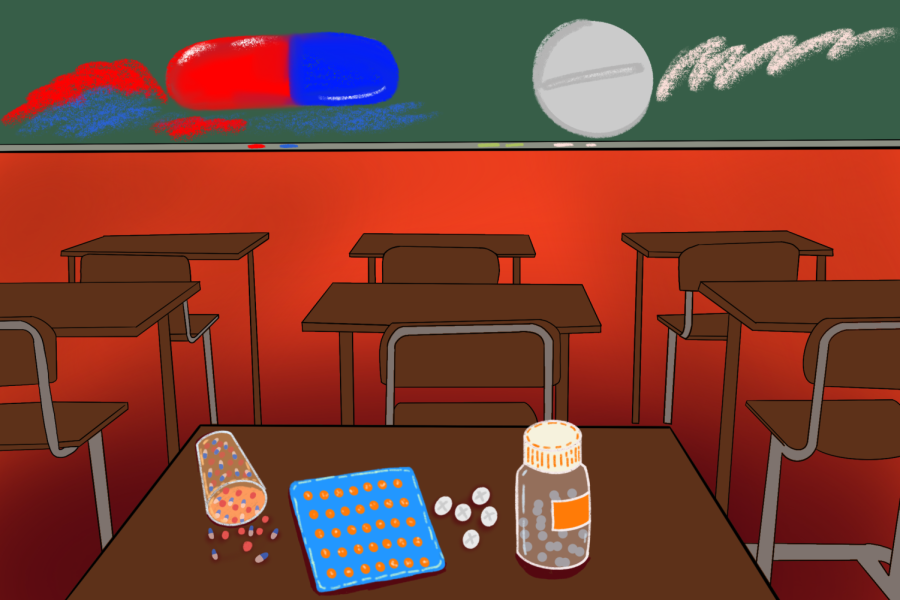Proactively prevent drug overdoses
September 25, 2022
Editor’s Note: A previous version of this column misattributed information given by Claire Zagorski to Laura Kinch. The Texan regrets this error.
In June 2022, the City of Austin declared a public health crisis for drug overdose deaths. In May 2021, Longhorn linebacker Jake Ehlinger died from an accidental drug overdose. To combat these tragedies and protect the student body, UT provides free Narcan available for pickup at various locations throughout campus.
Though it’s a step in the right direction, the University should do more to proactively prevent unnecessary drug overdoses. By providing readily available and comprehensive training programs, students could better respond to overdosing emergencies.
Naloxone, the generic name of Narcan, is a medication used to reverse the effects of an opioid overdose. The medication comes in a small package in the form of nasal spray, making it easy to save a life in the right place at the right time. However, while Narcan is an extraordinary drug, it requires adequate training to work as intended. Additionally, it can be difficult to identify an opioid overdose, and without proper execution, naloxone is useless.
If more widespread training programs were implemented, students would be able to act confidently in the case of an emergency. Additionally, encouraging higher-risk social organizations that regularly hold events to attend training sessions and equip themselves with Narcan could dramatically decrease unnecessary incidents.
Billy Lawrence, a business sophomore, believes that it would be helpful to offer naloxone training sessions to the whole student body.
“Absolutely. I think there’s very little downside to training people in dealing with overdoses, and I think it’s very important,” Lawrence said. The closest measure to this is Operation Naloxone, a project run by the School of Social Work in response to the state of Texas’ challenges with opioid misuse. One of the specific objectives of Operation Naloxone is to provide training sessions across Texas for opioid awareness, prevention and Naloxone use, according to their website.
Pharmacy Addictions Research & Medicine Program Coordinator and Harm Reduction Instructor Claire Zagorski explained Operation Naloxone’s services.
“(Operation Naloxone) posts about open training sessions you can go to, but you can also request one from them at any time,” Zagorski said. “It’s run and put out by the pharmacy students so I’ve had additional training in doing this. We’ve done some initiatives as well with sorority and fraternity life.”
Operation Naloxone does offer virtual training sessions open to UT students; however the last session was in April of 2021, indicating that the life of the training initiative has lulled. April is also an inconvenient time considering the school year starts in August. Implementing these programs at the beginning of every year would make more sense, so that incoming and returning students can be prepared for the entire school year.
Additionally, these training sessions are not directly referenced on the University’s Narcan distribution page. During the 2021-2022 school year, the University handed out 420 doses of Narcan, a meager quantity for the over 40,000 undergraduate students at UT. The current system for overdose prevention needs to be refreshed.
A lack of available opioid overdose training contributes to an already existing drug misuse and overdose problem, and more students should be adequately prepared to respond to life-or-death scenarios.
Laky is an economics sophomore from Chicago, Illinois.











